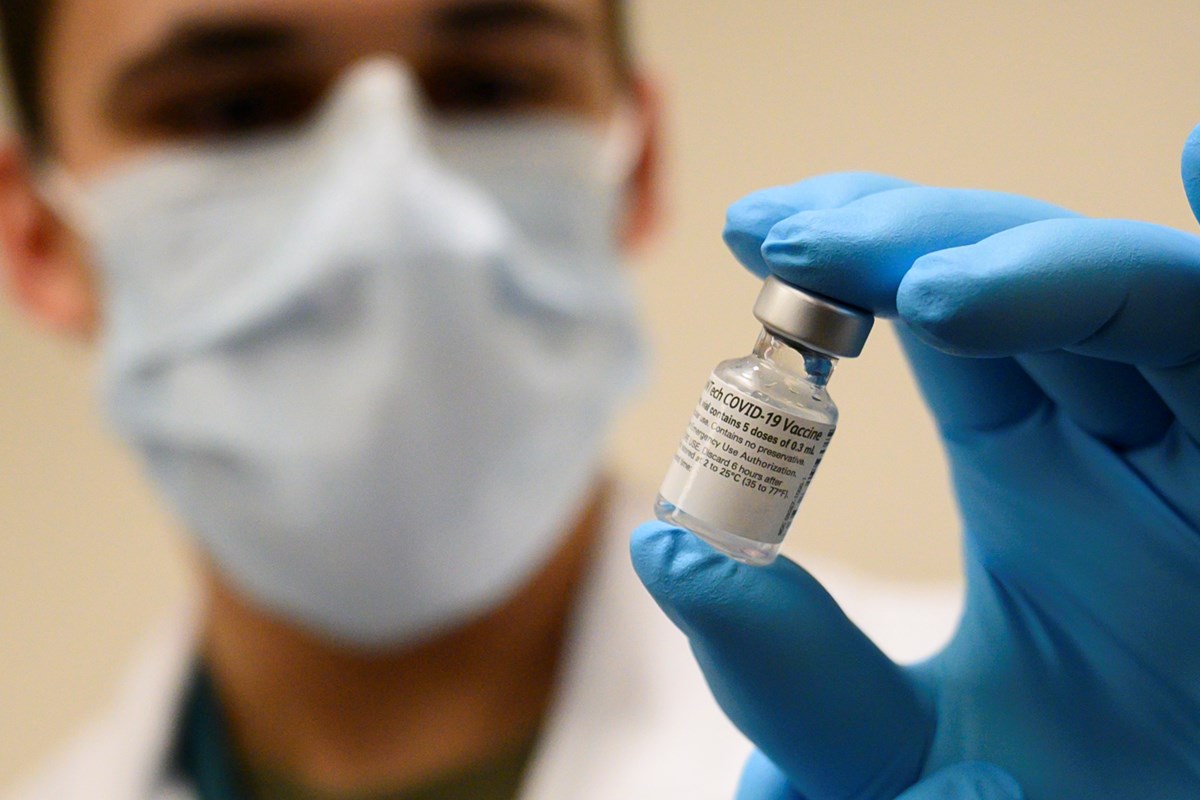A vaccine has arrived, but the COVID-19 pain has not relented. In fact, it’s intensifying.
“Covid-19 is now killing faster than at any point in 2020. And the new year just started,” CNN reported Thursday. “The US reported its highest number of Covid-19 deaths in one day Tuesday: 4,327, according to Johns Hopkins University. In fact, the five highest daily tallies for new infections and new deaths have all occurred in 2021.”
In the first 13 days of 2021, more than 3 million new coronavirus cases were reported.
To date, nearly 2 million deaths have been attributed to COVID-19 worldwide, so speed is of the essence. Unfortunately, vaccine distribution has been a challenge.
Waste and Dysfunction
The US has administered 10.8 million doses of one of two vaccines—mRNA-1273m, developed by the biotech company Moderna, and BNT162b2, developed by the pharmaceutical corporation Pfizer—through hospitals and other health care institutions.
That’s not fast enough, health officials say. Moreover, media reports show the vaccine rollout has been clumsy, slow, and fraught with waste.
For example, news reports note that many hospitals are throwing away doses of Pfizer’s vaccine because federal agencies are giving facilities syringes that cannot extract enough dosage.
“Some syringes distributed by Operation Warp Speed, the federal Covid-19 vaccine program, aren’t efficient enough to extract a sixth dose, according to hospital lobbyists,” Politico reports. “They say the issue appears to stem from supply chain problems that have troubled the nation’s pandemic response from the start.”
It gets worse. In New York, Gov. Andrew Cuomo placed strict restrictions on who’d get to receive the vaccine, and the state’s attorney general threatened stiff penalties on “any attempts to circumvent that process.” As a result, many hospitals in the Empire State were forced to dump vaccines because they couldn’t find enough people to vaccinate.
“Across New York State, medical providers in recent weeks had the same story,” The New York Times reports. “They had been forced to throw out precious vaccine doses because of difficulties finding patients who matched precisely with the state’s strict vaccination guidelines — and the steep penalties they would face had they made a mistake.”
Following the revelation and under political pressure, Cuomo expanded the vaccine pool to include 3.2 million more people.
The dysfunction is not unique to the US system. In the United Kingdom, it’s estimated that as many as 150,000 vaccines were wasted because physicians are being instructed to throw away vials after the fifth dosage, even though vials contain a sixth dosage.
This is an unashamed public information Tweet. It is prompted by a conversation I've had with an anxious doctor who is vaccinating against Covid-19 in east London. It is about why up to one-in-six Pfizer/BioNTech doses are being wasted in at least some vaccination...
— Robert Peston (@Peston) January 8, 2021
To be fair, we’re witnessing the largest vaccination campaign in history, which involves two different vaccines, one of which (Pfizer’s) must be stored at extremely cold temps (minus 70 degrees Celsius).
However, there’s a reason the vaccine rollout has been fraught with dysfunction.
A Lesson in Bureaucracy
Health officials say part of the problem with the vaccine is the rigidity of the guidance.
“I would strongly encourage that we move forward with giving states the opportunity to be more expansive in who they can give the vaccine to," said FDA Commissioner Stephen Hahn during a recent policy event.
Changes in the rules might help. But it will not fundamentally fix the problem. The vaccine roll-out will be unavoidably dysfunctional so long as it is controlled by government bureaucracy. That is because the most a bureaucracy can do is replace one set of highly arbitrary rules with another.
“You will never understand bureaucracies until you understand that for bureaucrats procedure is everything and outcomes are nothing,” economist Thomas Sowell once observed.
That is inescapably true, because bureaucrats are fundamentally disconnected from the social outcomes of their actions. Those social outcomes are extremely complex. Every decision about the distribution of a vaccine has innumerable impacts on the public. Prioritizing young health workers over the elderly will have many public benefits (more COVID patient care, etc.), but also many public costs (more direct risks to the most vulnerable population). There is no non-arbitrary way to balance the manifold public costs and benefits, or to incentivize bureaucrats to strike that balance.
Sowell is right. For bureaucrats, outcomes literally are nothing, because they have no way to make meaningful judgments about them. And for bureaucrats, procedure is necessarily everything, because it’s all they have to give their activity any kind of coherence.
“Public administration,” wrote Ludwig von Mises in his book Bureaucracy, “the handling of the government apparatus of coercion and compulsion, must necessarily be formalistic and bureaucratic.”
“Bureaucratization,” Mises added, “is necessarily rigid because it involves the observation of established rules and practices.”
The Entrepreneurial Alternative
Thankfully, this is not the case for private business and entrepreneurs.
For entrepreneurs, outcomes are everything, and procedure is, at most, a distant second. That is because the incentives of an entrepreneur have a tight and meaningful connection with social outcomes: namely, profit and loss.
Profit is often denounced as “selfish,” but it is actually a powerful and subtle way to tie private interest with public benefit. In fact, it is the only way to do so, given the extreme complexity of public benefits and costs discussed above.
In a market economy, trillions of individual value judgments (including value judgments about health and well-being) are expressed through exchanges and translated into simple money prices. Money prices enable the entrepreneur to calculate profit and loss, providing a meaningful and comprehensible gauge of success and failure in serving the public, as well as advancing his or her own career.
Thanks to this gauge, entrepreneurs are not reliant on rigid rules and procedures. They can nimbly and subtly adapt to public need, because they have the guiding star of profit and loss to navigate by.
The only way to make the COVID vaccine roll-out a professional affair instead of the bumbling clown show it currently is would be to take it out of the clumsy, sclerotic hands of bureaucrats and entrust it to the deft and responsive hands of entrepreneurs.


